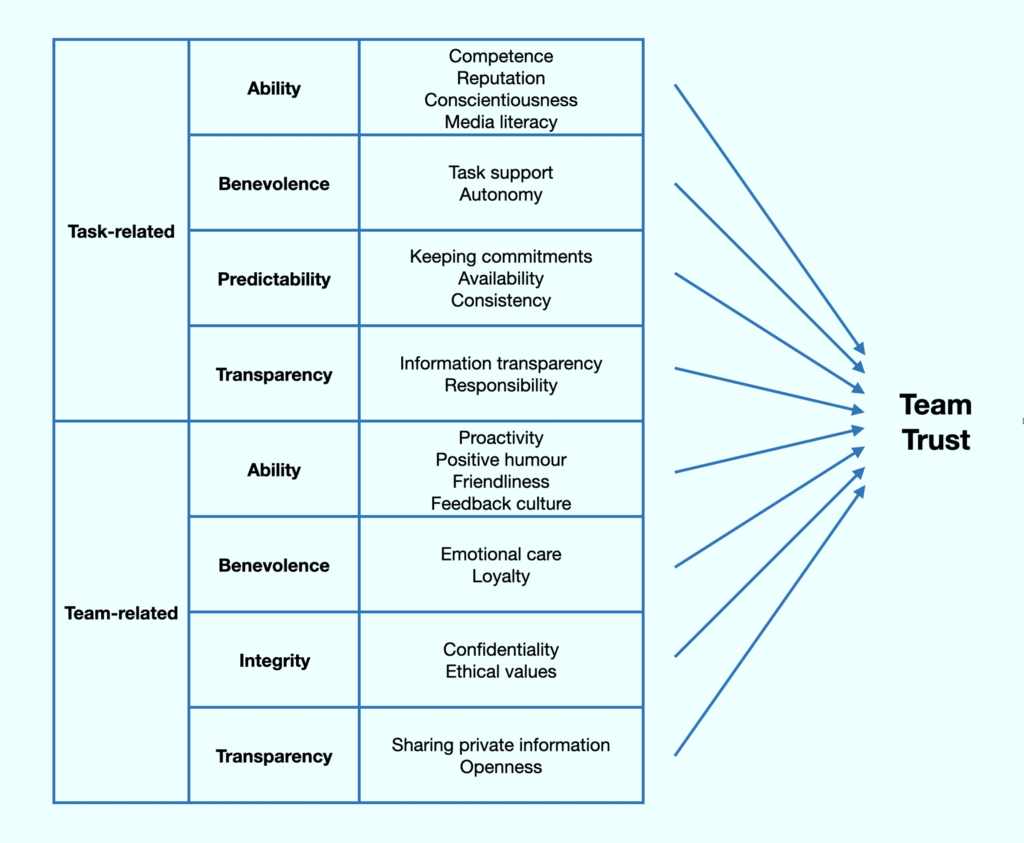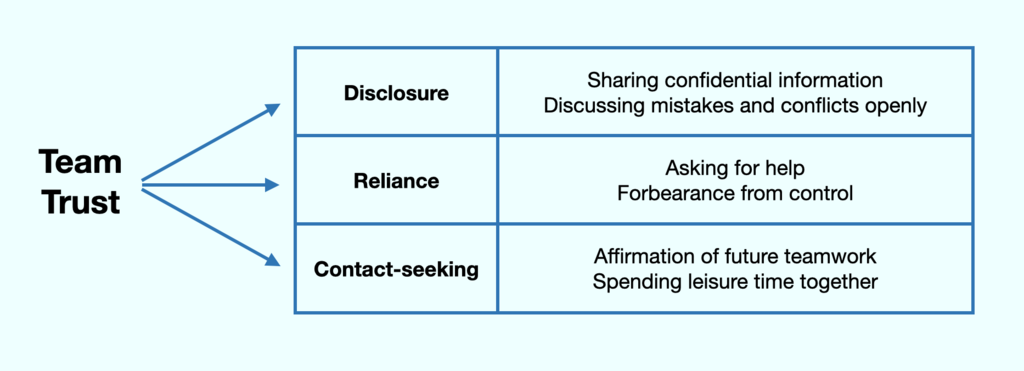
Trust is often seen as a key success factor for effective collaboration. This study by Christine Breuer and colleagues[1] offers a conceptual framework for understanding trust in teams (rather than between two people). They collected critical incidents from professionals who regarded the incidents as having either a positive impact on team trust or a negative impact. On the basis of their analyses, they identified behaviours that affected the perception of trust, and those that were consequences of trust. They found that team trust was affected by both task-related factors and by team-related factors, with ability, benevolence (i.e. care and consideration) and transparency important for both of these. In addition, predictability was important for task-related matters and integrity for team-related matters.

They also found that trust led to three types of potentially risky behaviour – disclosure, reliance and contact-seeking.

This indicates that if we are to identify the strengths and weaknesses of a team, it is important to probe multiple elements, covering the processes and attitudes associated with both task-related and team-related matters.
To find out more about the functioning of your team(s), use our Global Teamworking Profiler (GTP).
Professor Helen Spencer-Oatey, Director
References
[1] Breuer, C., Hüffmeier, J., Hibben, F., & Hertel, G. (2020). Trust in teams: A taxonomy of perceived trustworthiness factors and risk-taking behaviors in face-to-face and virtual teams. Human Relations, 73(1), 3–34. doi:org/10.1177/0018726718818721

